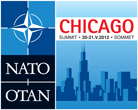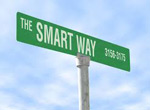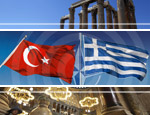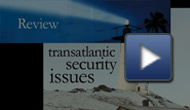Ambassador Vershbow:
back to the future
You’ve returned to a larger NATO,
what do you see
as the main differences?
Meetings may be longer
when everybody has to speak.
One of the traditions of NATO is
that even though
every view has been expressed,
it hasn't been expressed by everyone.
Everybody has to have their say,
but the process works.
And I don't think that even
adding a few more members
from among the candidates
will make it any more difficult
to reach decisions.
What do you think NATO learned
in the period you were away?
Some of the lessons
learned from Kosovo
produced the capabilities that proved
to be essential
to the success of the operation.
Countries like Denmark,
Belgium, Norway, Canada,
who didn't participate in a serious
way in the Kosovo operation,
used the intervening period to invest
in the munitions for their fighter
planes so that we were able to see
the smaller and edium-sized allies
take the lead in the strike mission,
rather than relying on the US
to do 95 per cent of the job
as it did in Kosovo.
Do you feel that NATO
has modernised enough?
We may look old and shabby
in terms of our HQ,
but we are very up-to-date in terms
of our mission and our capabilities
and the political role that we can play
in bringing countries together
to deal with common problems.
So, I'm not yet a tweeter,
but the Secretary General will tell me
to set up a Twitter account
pretty soon and...
But I think there is a lot of ways
that we can connect more directly
to our audience
and give a more up-to-date
image to the Alliance.

























